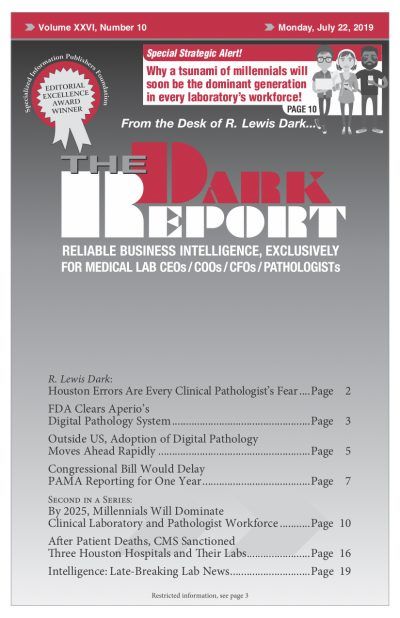CEO SUMMARY: At MD Anderson Cancer Center and Baylor St. Luke’s Medical Center, blood transfusion errors led to two patients’ deaths in separate incidents last fall. Then, this spring, a patient died in the emergency department of Ben Taub Hospital following “an ineffective process in patient monitoring and communication of critical lab values.” State and …
CMS Sanctioned Three Houston Hospitals, Labs Read More »
To access this post, you must purchase The Dark Report.


